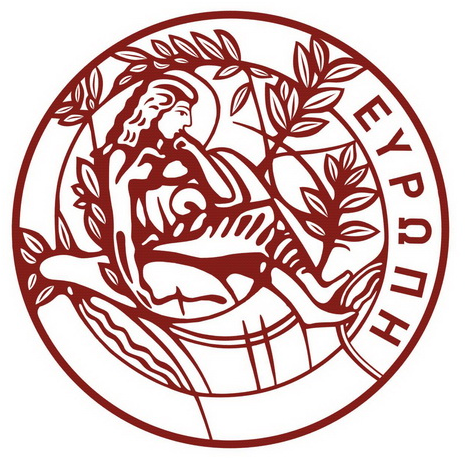Seminars 2008
Monday September 8th, 2008
Seminar
- Speaker
- Dr. Christos L. Chochos
- Affiliation
- Institute of Physical Chemistry, NCSR "Demokritos"
- Title
- Conjugated Polymers and Block Copolymers For Various Optoelectronic Applications with Emphasis on Plastic Solar Cells
- Location
- Department of Physics Bldg., Voutes, 3rd floor Seminar Room
- Time
- 12:00
- Language
- English
Wednesday December 17th, 2008
Seminar
- Speaker
- Asst. Prof. A. Georgakilas
- Affiliation
- DNA Damage and Repair Group, Biology Department, East Carolina University, Greenville, NC, USA
- Title
- Detection of clustered DNA damage in human tumor cells and tissues
- Location
- Department of Physics Bldg., Voutes, 3rd floor Seminar Room
- Time
- 12:00
- Language
- English
- Abstract
Oxidative stress resulting from the production of reactive oxygen species (ROS) can induce a plethora of DNA lesions in the form of single and clustered DNA damage. Clustered DNA lesions are divided in two major groups, double-stranded breaks (DSBs) and non-DSB oxidative clustered DNA lesions (OCDL). DSBs are considered highly genotoxic because they potentially lead to chromosomal breakage if unrepaired. The repair resistant OCDLs could serve as a common indicator of oxidative stress in human malignant cells or tissues. In this presentation I will present the current advances performed in my laboratory in the detection of clusters in human cells and tissues using biophysical and molecular approaches. I will also focus in our recent data about the involvement of specific DNA repair proteins like BRCA1 and DNA-PKcs in the repair of clusters and the overall evidence we have for the association of clusters with carcinogenesis.
Thursday December 18th, 2008
Seminar
- Speaker
- Asst. Prof. Nikos Chronis
- Affiliation
- Mechanical Engineering Department, University of Michigan, Ann Arbor, Michigan, USA
- Title
- Bio-MEMS tools for Medical and Life Science Applications
- Location
- Department of Physics Bldg., Voutes, 3rd floor Seminar Room
- Time
- 12:00
- Language
- English
- Abstract
Bio-MEMS (MicroelectroMEchanical Systems) is newly developed area that aims to revolutionarize the medical and life science fields by providing micron-size tools that can manipulate and interact with various biolological entities. In this talk, three novel Bio-MEMS devices will be presented: (i) an implantable sensor for monitoring intracranial pressure after traumatic brain injuries, (ii) a portable HIV/AIDS monitoring device for clinical use in the developed world, and (iii) a family of microfluidic devices that can deepen our understanding of neural networks in vivo.


